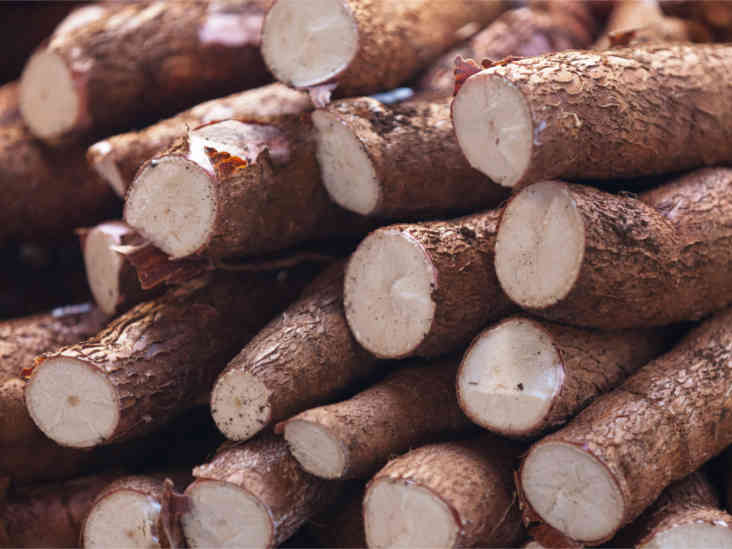Commodities News & Agribusiness
Nigeria’s new cassava policy to stem $6.1bn annual wheat importation
Published
5 years agoon

Nigeria’s new cassava policy to stem $6.1bn annual wheat importation
Read Also:
The Nigerian Government says the policy of 10 per cent of cassava flour in bread and other confectionery would reduce wheat importation while the demand for cassava would have positive effect on the economy.
According to record, importers of wheat in Nigeria spend N2.86 trillion ($6.1 billion) annually despite several initiatives targeted at reducing the capital flight.
The government stated that the policy has huge potential to generate massive employment, save billions of naira on wheat import, provide huge foreign exchange (forex), and create wealth for average Nigerians and eliminate hunger.
Speaking in Ibadan at the capacity building development for master bakers on the use of High Quality Cassava Flour (HQCF) for baking bread and other confectioneries, the Director, Federal Department of Agriculture, Mrs Karima Babangida, noted that the 10 per cent cassava inclusion was to guarantee acceptability and market sustainability across the nation, and to address the challenges therein.
According to her, the agriculture policy put in place by the government is poised to build agribusiness ecosystem that would address challenges in agricultural sector in partnership with stakeholders to achieve export substitution, job creation, and diversification.
She, however, said to achieve the feat, there was the need for more commitment from stakeholders, as the policy will lead to increase in income, livelihood and promote healthy food processing activities.
The training will facilitate use of raw materials when master bakers learn the skills and cascade the training to other members to promote increased efficiency in food processing activities
In her remarks, Oyo State Coordinator, Federal Ministry of Agriculture and Rural Development (FMARD), Dr. Kakulu Omoneye, said the Ministry was working to achieve food security through various activities by using policies and technologies that would lead to wealth creation and improved standard of living of Nigerians.
She stated that the purpose of the workshop was to build capacity to master bakers and continue to exposed them to necessary skills and promote efficiency in food processing by using HQCF in baking bread through practical method.
Earlier in his welcome address, the FMARD Southwest regional director, Engr. Marcus Ogunbiyi who was represented by Mrs Oguntuyi Omolara stated that the policy can gives the country 300,000 tones of cassava flour annually, adding that one of the way by which the Ministry is working towards achieving desired result is through promotion of various crops which Nigerians has comparative advantage in production.
Share this:
- Click to share on X (Opens in new window) X
- Click to share on Facebook (Opens in new window) Facebook
- Click to share on WhatsApp (Opens in new window) WhatsApp
- Click to share on Pocket (Opens in new window) Pocket
- Click to share on Telegram (Opens in new window) Telegram
- Click to email a link to a friend (Opens in new window) Email
- Click to share on LinkedIn (Opens in new window) LinkedIn
You may like


International Maize Price Eases Amidst Global Wheat Supply Chain Trouble


CBN moves to stop $2bn annual capital flight to wheat importation


Wheat importers to spend $1.29bn despite forex restriction


CBN moves to impose forex restriction on wheat, sugar importation


FG says Nigeria still world’s largest cassava producer despite low yield








